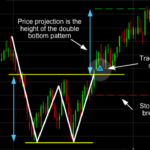Reputable sources offering CFD trading
There are several reputable sources offering CFD trading training and mentoring programs. Here are some key insights from the sources:
- Axi Academy: Axi offers a Share CFDs Trading Course designed for new traders, covering essential information to start trading the stock market. The course is written by professionals with over 15 years of experience in financial markets and guides traders through the foundations of the stock market, risk management, and how to profit from share price movements1.
- Trading Educators: This platform provides private mentoring services with Joe Ross, a Master Trader and Founder of Trading Educators, Inc. Joe Ross offers mentoring in futures trading strategies, forex, system trading, and various trading methods like Ambush Trading Method and AlgoStrats:FX2.
- Capital.com: Capital.com offers a CFD Trading Course to help individuals gain a better understanding of derivatives and CFDs. The course explains how to profit from asset price movements without directly purchasing them and covers topics like how CFD trading works, leverage, positioning, and risk management3.
- Contracts for Difference: This comprehensive CFDs Guide covers all main topics related to CFD trading, including trading strategies, risk management, trading costs, technical analysis, and the psychology of trading. The guide emphasizes the importance of education and training for meaningful CFD trading4.
- IG Academy: IG Academy provides a free course on how spread betting and CFD trading work, offering essential knowledge for beginners. The course covers leverage, benefits, risks, and differences between spread betting and CFDs, equipping learners to start trading in these derivative products5.
- Trading Mentor by Colin Simpson: Colin Simpson, a trading mentor with over 20 years of experience, offers premium mentoring services and automated trading. His courses cover share market trading, commodities trading, world index trading, and foreign exchange trading, providing personalized mentoring and skills evaluation to help traders develop their own trading style8.
In conclusion, individuals seeking CFD trading training can benefit from these reputable sources that offer courses, mentoring programs, and comprehensive guides to help them navigate the complexities of CFD trading successfully.
what are the prerequisites for taking a cfd trading course
To enroll in a CFD trading course, there are several prerequisites that individuals should consider based on the information provided in the search results:
- Basic Understanding of Financial Markets: Having a foundational knowledge of financial markets and trading concepts is beneficial before taking a CFD trading course. Understanding terms like leverage, margin, asset classes, and risk management can help individuals grasp the course material more effectively35.
- Interest in Trading: A genuine interest in trading and financial instruments is essential for individuals looking to pursue a CFD trading course. Being passionate about learning how to trade CFDs and being willing to dedicate time and effort to understand the complexities of the market are key prerequisites7.
- Willingness to Learn: Being open to continuous learning and improvement is crucial for success in CFD trading. Individuals should be motivated to enhance their skills, stay updated on market trends, and adapt to changing market conditions throughout the course1.
- Risk Management Awareness: Understanding the risks associated with CFD trading is important before starting a course. Individuals should be aware of the high-risk nature of CFDs, the potential for losses, and the importance of risk management strategies to protect their investments79.
- Access to Educational Resources: Having access to educational resources provided by reputable platforms offering CFD trading courses is essential. These resources can include online courses, guides, webinars, and mentorship programs that cater to beginners in CFD trading48.
- Demo Trading Experience: It is recommended for beginners to practice demo trades before committing real money to CFD trading. Demo accounts allow individuals to simulate real market conditions without financial risk, helping them familiarize themselves with trading platforms and strategies7.
By meeting these prerequisites and being prepared with a basic understanding of financial markets, a keen interest in trading, a willingness to learn, awareness of risks, access to educational resources, and some demo trading experience, individuals can make the most out of a CFD trading course and enhance their skills in this dynamic financial market sector.
what are the qualifications to look for in a cfd trading mentor
When searching for a CFD trading mentor, it is essential to consider specific qualifications and skills that can enhance your learning experience and trading success. Based on the provided sources, here are the key qualifications to look for in a CFD trading mentor:
- Experience in Forex and Financial Markets: A reputable CFD trading mentor should have a background in Forex and financial markets, with hands-on experience in trading and risk management. Look for mentors with a strong understanding of trading platforms like MT4/MT5 and other trading tools1.
- Educational Background: Seek mentors with a Bachelor’s or Master’s degree in computing or a related field. Additionally, certifications like Cysec certification can be advantageous, demonstrating the mentor’s commitment to professionalism and expertise in the field1.
- Hands-On Experience: A qualified CFD trading mentor should have a minimum of 3 years of practical experience as an MT4/MT5 Administrator, proficient in configuring and maintaining trading platforms. Experience with other trading platforms and server administration is also valuable1.
- Problem-Solving Skills: Look for mentors with excellent problem-solving and communication skills. Effective mentors should be able to address technical issues, communicate complex concepts clearly, and guide traders through challenges in a fast-paced environment1.
- Collaborative Approach: A good mentor should be able to work collaboratively with traders, providing support, guidance, and assistance in a dynamic trading environment. Seek mentors who can foster a collaborative learning atmosphere and help traders develop their skills effectively1.
- Risk Management Expertise: Given the high-risk nature of CFD trading, it is crucial to find a mentor with a strong understanding of risk management principles. A qualified mentor should be able to help traders implement risk control measures, monitor trading activities for potential risks, and ensure compliance with industry standards1.
By considering these qualifications when selecting a CFD trading mentor, traders can benefit from personalized guidance, practical insights, and the expertise needed to navigate the complexities of CFD trading successfully.


